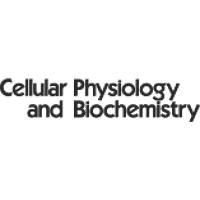“Colchicine-resistant familial Mediterranean fever can be treated by anti-IL-1 biologic therapy; however, such treatment needs approval by the health insurance company, and many patients are denied such treatment or do not respond to it.
CASE REPORT Two familial Mediterranean fever (FMF) patients, both homozygous for M694V mutation and resistant to colchicine treatment, were treated with medical cannabis. Prior to that, 1 patient was denied biologic treatment and the other had no significant response to anakinra.
Under medical cannabis treatment, both patients had remarkable improvement in the severity of the attacks and also a decrease in the frequency of the attacks, from once every 2 weeks to 1 attack every month in 1 patient; this patient had also a remarkable reduction in the C-reactive protein level during the attacks.
CONCLUSIONS Cannabis is a therapeutic option for treating the most complex patients with FMF.”

 “Posttraumatic stress disorder (PTSD) is a potentially debilitating mental health problem.
“Posttraumatic stress disorder (PTSD) is a potentially debilitating mental health problem. “Medical and recreational cannabis use is increasing significantly, but its impacts on oral health remains unclear.
“Medical and recreational cannabis use is increasing significantly, but its impacts on oral health remains unclear. “Cannabidiol (CBD) oils are low tetrahydrocannabinol products derived from
“Cannabidiol (CBD) oils are low tetrahydrocannabinol products derived from  “Among the assisted reproductive techniques, the in vitro maturation of oocytes (IVM) is less developed than other techniques, but its implementation would entail a qualitative advance.
“Among the assisted reproductive techniques, the in vitro maturation of oocytes (IVM) is less developed than other techniques, but its implementation would entail a qualitative advance. “The prior medical literature offers little guidance as to how pain relief and side effect manifestation may vary across commonly used and commercially available cannabis product types. We used the largest dataset in the United States of real-time responses to and side effect reporting from patient-directed cannabis consumption sessions for the treatment of pain under naturalistic conditions in order to identify how cannabis affects momentary pain intensity levels and which product characteristics are the best predictors of therapeutic pain relief.
“The prior medical literature offers little guidance as to how pain relief and side effect manifestation may vary across commonly used and commercially available cannabis product types. We used the largest dataset in the United States of real-time responses to and side effect reporting from patient-directed cannabis consumption sessions for the treatment of pain under naturalistic conditions in order to identify how cannabis affects momentary pain intensity levels and which product characteristics are the best predictors of therapeutic pain relief. “Marijuana has been used by many different civilizations for numerous different purposes, including its use for medical indications. Recently, there has been significant media coverage of the efficacy of medical marijuana in the treatment of seizures in children with Dravet syndrome, and this has led many to search for other possible pediatric indications for cannabinoids, including many different indications in pediatric cancer. However, there is very little evidence on safety or efficacy of cannabinoids in children being treated with cancer. This commentary accompanies a recent paper by a group in Israel who have published their experience of medical marijuana in 50 children and adolescents with cancer, showing excellent satisfaction and better symptom control, and without significant adverse drug reactions. This study from Israel is an excellent first step, but prospective well-designed trials of medical marijuana in pediatric oncology are urgently needed.”
“Marijuana has been used by many different civilizations for numerous different purposes, including its use for medical indications. Recently, there has been significant media coverage of the efficacy of medical marijuana in the treatment of seizures in children with Dravet syndrome, and this has led many to search for other possible pediatric indications for cannabinoids, including many different indications in pediatric cancer. However, there is very little evidence on safety or efficacy of cannabinoids in children being treated with cancer. This commentary accompanies a recent paper by a group in Israel who have published their experience of medical marijuana in 50 children and adolescents with cancer, showing excellent satisfaction and better symptom control, and without significant adverse drug reactions. This study from Israel is an excellent first step, but prospective well-designed trials of medical marijuana in pediatric oncology are urgently needed.” “There is a growing preference for the use of
“There is a growing preference for the use of  “As more states enact laws liberalizing marijuana use and the U.S. opioid epidemic surges to unprecedented levels, understanding the relationship between marijuana and opioids is growing increasingly important.
“As more states enact laws liberalizing marijuana use and the U.S. opioid epidemic surges to unprecedented levels, understanding the relationship between marijuana and opioids is growing increasingly important.